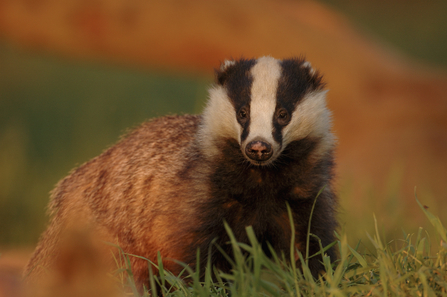
Andrew Parkinson/2020VISION

Andrew Parkinson/2020VISION
Yesterday the Government gave the green light for supplementary licences for badger culling – despite opposition that The Wildlife Trusts and hundreds of other concerned organisations and individuals expressed in a consultation on the subject earlier in the year. This means that those already holding a license and who have been culling for four years may continue for a further five years – with no robust proof of whether their culling so far has reduced the badger population or the rate of bovine TB (bTB).
A new consultation was also announced by Farming Minister, George Eustice MP, which may result in the cull being extended to more new areas. Landowners have expressed an interest in culling in four areas of Somerset, Gloucestershire, Herefordshire, and Worcestershire.
The Wildlife Trusts will continue to oppose the ineffective cull. We urge you to oppose the cull by responding to the consultation by 2nd August 2017, particularly if you live or work in one of the affected areas .
The primary route of bovine TB infection is via cow-to-cow contact, and the control of bTB in cattle should be the main focus of efforts to control this problem. Cattle vaccination offers the best long-term way to reduce bTB in the cattle population. The Wildlife Trusts call on the Government to accelerate and prioritise research into cattle vaccination.
In the absence of cattle vaccination, The Wildlife Trusts believe that vaccination of badgers is a more humane and effective solution to helping stop the spread of bTB than culling. In the face of global shortages of the vaccine, in 2017 three Trusts, Derbyshire, Nottinghamshire and Berks, Bucks & Oxfordshire, pioneered the use of an alternative vaccine. We welcome the Government’s announcement that supplies of the vaccine are sufficient to allow Badger Edge Vaccination Scheme to resume in 2018.
Stephen Trotter, Director The Wildlife Trusts England, said,
“In the week that Parliament goes into summer recess, the Government has made a number of important announcements on bovine TB and badgers. The Wildlife Trusts welcome the good news from Minister, George Eustice MP, that the official badger vaccination programmes will re-start next year with new supplies of BCG vaccine. This has been shown to be an effective way of reducing the risks of disease transmission and value for money compared to the cost of culling badgers. ”
“But The Wildlife Trusts are shocked by the announcement that Natural England will be offering those currently holding a badger control license the opportunity to apply to cull badgers for a further five years. This flies in the face of the Government’s own scientific evidence and previous guidance which said that culling would only be ‘necessary’ over a period of four years. We believe it is a further admission that the badger cull policy has failed and it contradicts the strong weight of opinion expressed in an earlier consultation on the issue.”
“The Wildlife Trusts remain strongly opposed to the badger cull because the scientific evidence shows that it will not work in controlling the problem of TB in cattle. We sympathise strongly with the plight and pain of farmers in affected areas but the proposal to extend it to new cull zones in Somerset, Gloucestershire and adjoining parts of Herefordshire and Worcestershire is not warranted by the evidence and we believe this is the wrong approach. Instead, we believe that the Government must do much more to reduce cattle-to-cattle transmission, significantly improve testing for TB in cattle and improve biosecurity and on-farm management practices. “
“Overall, we believe that the Government has failed to make adequate progress to overcome the issues with approving the use of TB vaccine in cattle. Ultimately, a vaccine for use in cattle is the best and only solution to this disease.”